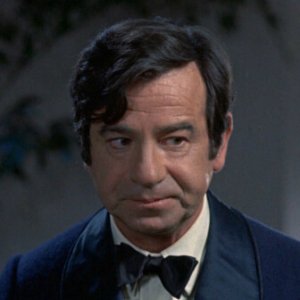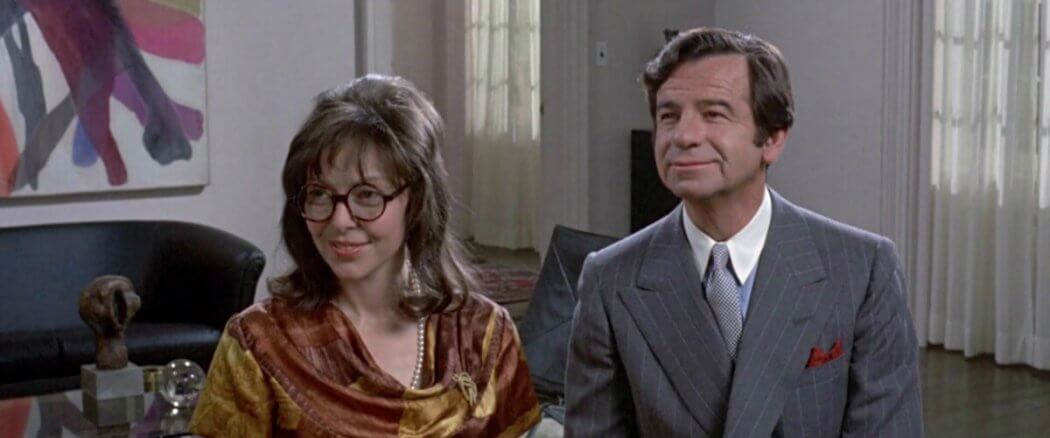“[God] cannot tempt to virtue as we do to vice,” Screwtape declares in his titular letters, holy-ghost-written by C.S. Lewis. However Screwtape is one of the leads in a legion of demons, assigned to mentor a young devil in the methods of tempting men, so perhaps he is not trustworthy. Or correct. As a case study, allow me to submit Elaine May’s A New Leaf.
Henry Graham (Walter Matthau) comes from old money, but is newly impoverished. The trust fund is bust, due to his binging on tailored suits, art and a sports car. The car, in the tradition of domesticated dogs, seems to have assumed the characteristics of its owner; it refuses to work and needs constant maintenance.
“How many men these days require the services of a gentleman’s gentleman?” Henry’s manservant Harold expounds. “How many men have your devotion to form, sir? You have managed, in your own lifetime, Mr. Graham, to keep alive traditions that were dead before you were born.” Harold, seeking to keep both of their rare species from going extinct, is quick to suggest a solution: marry money. Henry is quick to add another suggestion: marry and kill money.
Such suggestions will require courtship of a high-cost order, so Henry woos his wealthy uncle into a loan, the final terms of which involve extravagant interest and a deadline of six weeks to marry a woman of means. And so it comes to pass that Henry makes a pass at Henrietta (Elaine May), a botanist who still wears hats with veils in the early ’70s and gets more food and drink on her person than in it. She is another planet around whom Henry orbits, becoming her husband, her accountant, her manager, her decorator, her dresser and her assistant, and there is less and less time to research home and garden chemicals with which to poison her.
Unlikely Virtue
The story may seem like a steam engine built with plot devices and running on the tracks laid down by screwball comedy – and perhaps it is – but to have Elaine May conducting makes all the difference. She is one of America’s masters of comedy, a genre more precious than drama but always marked down. As writer, director and star, May’s genius here, indeed throughout all of her work, seems to be in observing us and imitating us in a way we dismiss as odd, then accept as funny, then recognize as profound.
 Consider how Henry first appears as a trust fund tick worthy of our contempt, but shifts to a bankrupt buffoon almost worthy of our sympathy, then to a self-made manager somewhat worthy of our respect. He sets out to work the system, but is repeatedly deceived into good works by a supercilious satisfaction in his absolute necessity to Henrietta’s livelihood. “Oh, no,” he moans to his manservant in one the movie’s best exchanges, “I forgot to check her before she went to school this morning. She’ll be walking around all day with price tags dangling from her sleeves.”
Consider how Henry first appears as a trust fund tick worthy of our contempt, but shifts to a bankrupt buffoon almost worthy of our sympathy, then to a self-made manager somewhat worthy of our respect. He sets out to work the system, but is repeatedly deceived into good works by a supercilious satisfaction in his absolute necessity to Henrietta’s livelihood. “Oh, no,” he moans to his manservant in one the movie’s best exchanges, “I forgot to check her before she went to school this morning. She’ll be walking around all day with price tags dangling from her sleeves.”
In moments like this, Walter Matthau’s contribution is invaluable. With seemingly careless detail, he swirls paternal condescension and maternal concern into perfect balance. As Henrietta and Henry become increasingly codependent, Matthau and May become a power couple of comedy, giving and receiving with such egalitarian grace that you really can’t imagine one without the other.
Neither can you imagine a different version of the film, but at the time of release, May publicly protested the editing, which reduced the original cut’s running time by an hour, removed two murders and reframed the ending with a quiet declaration of love as servanthood.
Apparently Henry was not the only one tempted to virtue. As it turns out, A New Leaf is better for it.


